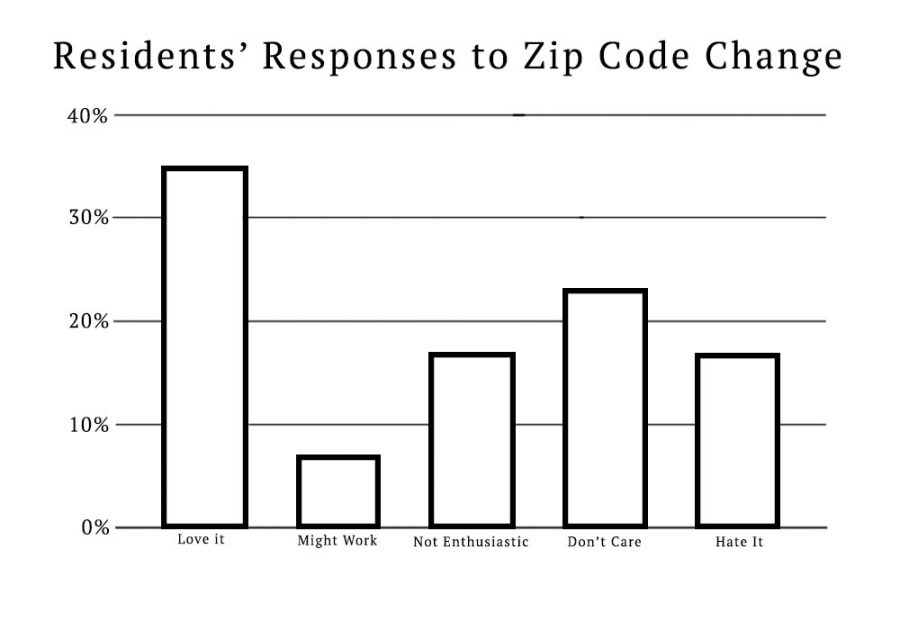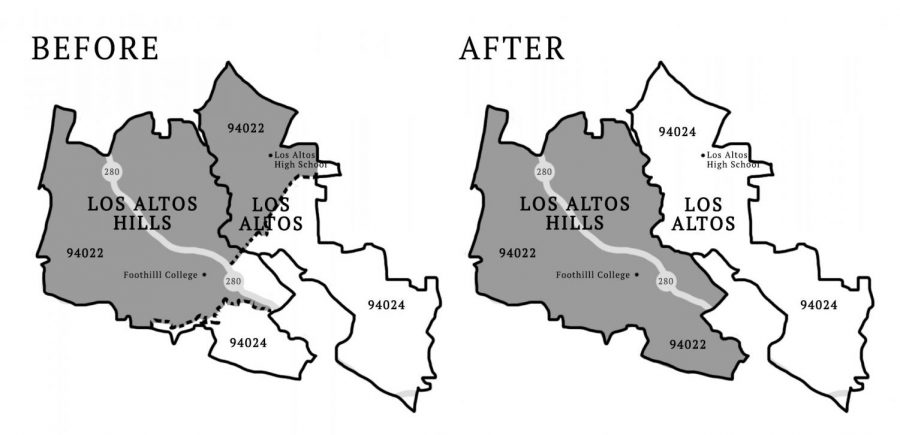Los Altos Hills Mayor Proposes ZIP Code Changes
October 23, 2017
Los Altos Hills Mayor Gary Waldeck has announced plans to change the ZIP codes of Los Altos and Los Altos Hills to match their city boundaries, and will propose the change at a joint City Council meeting in November. The proposal has garnered controversy, as Los Altos Hills council members believe the change may prove difficult for residents who need to update their addresses to family members or friends.
The two cities currently share ZIP codes 94022 and 94024, but the lack of separate identities creates problems for both communities, Waldeck said. ZIP codes aren’t only used for mailing, they reflect how communities are perceived and thus have economic consequences. Waldeck believes the ZIP code change would benefit the cities and residents in five main ways, outlining the reasons in a document to city council members titled “Rationale for seeking Unique but Different ZIP Codes for the Los Altos and Los Altos Hills Communities:”
- Creating accurate demographic data: Census and demographic data is collected by ZIP code, so changing the ZIP code would allow for more accurate data.
- Decreasing insurance rates: Los Altos Hills insurance rates would decrease due to its lower crime rate, as insurance companies determine rates partially by ZIP codes. Los Altos has 11.25 crimes per 1,000 people, while Los Altos Hills has 7.36 crimes per 1,000 people, city analytics website Neighborhoodscout said.
- Increasing property value: Los Altos properties would increase in value as Los Altos Hills homes are worth less in dollars per acre. Property values are determined by ZIP code.
- Resident safety: Residents in the Hills are threatened by late-night mail deliveries, as residents that pick up their mail in the evenings are in danger of being hit by passing cars. The post office takes requests for mail to be delivered earlier by ZIP code.
- Clarifying sales tax jurisdictions: Sales tax is currently divided by ZIP code jurisdiction, not city, leading to tax payments that do not go to the correct city.
But Los Altos Hills Council Member Courtenay C. Corrigan was unsure that potential costs in legal counsel and logistics would be worth the benefits of the change.
“The city will incur costs both by having to engage our staff and even possibly legal counsel to pursue this,” Corrigan said. “[There’s also the] cost to individual homeowners to have to spend time changing their address with all the people that mail them.”
Waldeck said the cost would be minimal, as most of the work of changing mail routes would be on post offices.
“There’s no evidence of a financial cost other than the posting that says change my ZIP code,” Waldeck said. “That would be about it. There’s no cost to the cities, there’s no cost in terms of the post office, the cost for changing routes is internal [to the post office.]”
Residents would need to pay for the cost of informing non-commercial mail sources of their address change, but Waldeck said most commercial sources as well as credit cards should update addresses automatically. The post office will continue delivering mail for one year to the original address to give time for residents to inform family and friends of the change.
Los Altos Hills Council Member Roger Spreen was concerned by the “hassle” associated with changing the ZIP code. He believes that manually updating ZIP codes will cause more difficulty to residents and that the benefits of the change may not be worth it.
“The same reason that it would be beneficial — the fact that the ZIP code is used for so many things — is why it might be painful having to change our ZIP code in all those systems,” Spreen said in an email. “How many letters won’t be delivered after the one-year forwarding period due to senders (like, say, family members) who don’t update their contact info? How many people won’t understand the benefits of the change, and thus see it as a lot of hassle for nothing?”
Municipality and community leaders must write to one of 80 USPS district managers to request for the ZIP code change, where district managers evaluate the viability and reasoning of the request, Congressional Research Service (CRS) Report “Changing Postal ZIP Code Boundaries” said.
If Waldeck’s proposal is approved by district managers, a formal survey will be sent through the post office to affected residents, requiring a simple majority to pass.
The CRS report also identifies a few issues that might prevent citizens from agreeing to change the ZIP code, stating that the resident survey “might reveal that most customers would prefer not to notify their correspondents, change their magazine subscriptions, replace their stationery, go to a different post office to pick up left-notice mail or perhaps to identify with a different ‘community identity.’”
Proposals must be sent to district managers by December this year to have the ZIP code changed in July next year.
Waldeck will seek majority votes at the Los Altos and Los Altos Hills joint council meeting in November. If both councils approve the change affected residents will receive surveys from the post office, asking them to vote “yes” or “no” to the proposed change. If only one council were to approve the change, residents would be asked to vote on implementing a new 940 ZIP code in their city.
A few months ago, citizens’ reactions to the change were mixed when Waldeck sent out a survey to residents on NextDoor, a neighborhood social networking site.
Corrigan believes that many residents will not feel strongly enough about their ZIP code to warrant going through the process.
“I don’t really think people care,” Corrigan said. “Very rarely do people refer to themselves as ZIP codes. Mayor Waldeck made some compelling arguments that if true, I think are really interesting but I don’t know if [they are] in fact accurate. I said I’m willing to hear from residents, but if they don’t want it, I don’t see any value in spending time or money pursuing it.”
Correction 11/16/17: An earlier version of this article misspelled Los Altos Hills Council Member Roger Spreen’s name.





